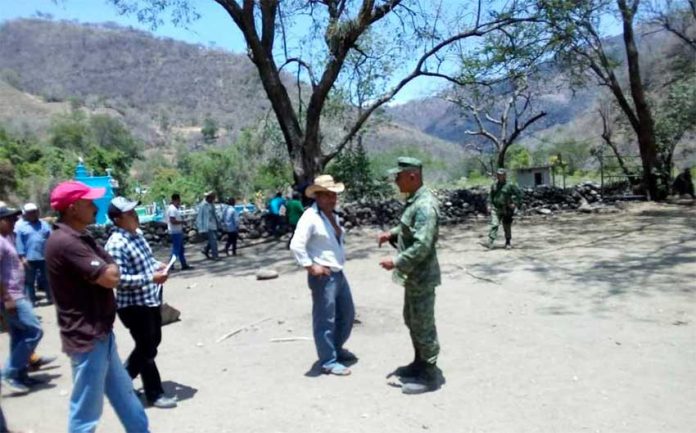Residents of a town in Guerrero detained 40 soldiers this week to demand that they halt operations to destroy opium poppies.
On Wednesday, residents of Campo Morado, a community in the municipality of Heliodoro Castillo, set up a roadblock to prevent the soldiers — presumably deployed to destroy poppy plants — from leaving the upper Sierra region.
Farmers called on the federal and state governments to provide assistance so that local farmers are not forced to cultivate poppies to survive.
The soldiers were allowed to leave the upper Sierra region yesterday.
State security spokesman Roberto Alvarez Heredia denied that the soldiers were actually detained, explaining that residents simply “took advantage of their presence to let them know their concerns.”
The Guerrero government said yesterday that officials from several departments and military personnel had met with representatives from several communities in Heliodoro Castillo.
Preliminary agreements were signed requiring the state to provide support to the communities, as well as machinery to to carry out roadwork.
Another meeting has been scheduled for April 25 in the state capital, Chilpancingo.
The farmers claim that the state government promised last November that drug crops would not be destroyed and that alternative means of support would be provided. Neither promise was kept, they say.
Prices for Mexican opium gum plummeted by as much as 80% last year due to the rise in demand for the synthetic opioid fentanyl among United States drug users, according to an independent study.
The price slump has devastated many communities in Guerrero, which have long depended on opium income.
Source: Milenio (sp)
